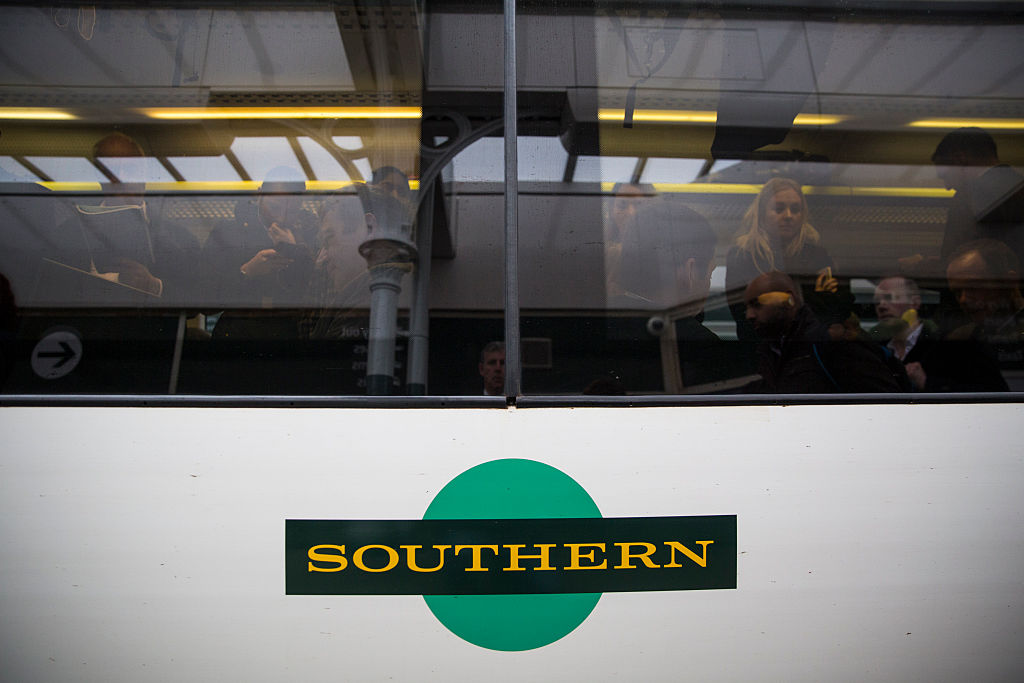Buried in yesterday’s drama over Priti Patel was the news that train drivers represented by Aslef have voted to end their industrial action on Southern Rail by accepting a pay deal which will give them a 28.5 per cent rise over five years. It will take their basic pay – for a four day week – to £63,000. With overtime, some could find themselves dragged into Jeremy Corbyn’s supertax bracket, aimed at those earning more than £80,000. It won’t even mean the end of the misery on Southern Rail, because the Rail, Maritime and Transport Union (RMT), which has also been striking, has not accepted a deal.
Wasn’t this sort of thing – unions holding railways to ransom for outrageous pay demands – supposed to be ended by privatisation? Instead, the strikes have continued and the pay rises become ever more outrageous. And still the cost falls on the taxpayer – even more, in fact. In 2015/16, taxpayers subsidised the railways to the tune of £4.8 billion – more than twice the subsidy they were receiving in the years leading to privatisation in 1995/96.
Surely the point of rail privatisation was to reduce the cost to the taxpayer, transfer financial risk to the private sector, keep fares down, give passengers more choice and end rail strikes. None of these things has been delivered. Fares, as well as subsidy, has gone up. While a few places, such as Oxford, have gained new services, in most cases a single train operating company enjoys a local monopoly – ruthlessly exploited, as monopolies always are, to jack up fares. On Southern Rail, what competition was created on privatisation has since been lost through amalgamation of franchises (although the government now says it will break up Southern again). As regards financial risk, it is taxpayers who have paid for the dysfunctional service on Southern over the past 18 months – the Southern Rail franchise was constructed in such a way that it is taxpayers who have lost out – the government takes the revenue but pays Southern to operate the trains, regardless of how many people are actually travelling.
It should hardly come as a surprise – though it did to some Conservatives – that according to a Legatum/Populus poll in October 75 per cent of the public now think that the railways would be better-off renationalised. Jeremy Corbyn has made hay with his promise to do just that.
I am struggling to see why the government does not follow suit – admit what is obvious to the overwhelming majority of the population, that rail privatisation has been a disaster and announce that as rail franchises run out they will all be combined into one state-owned company. At the same time it should announce that it will legislate to prohibit strikes. It should also maintain one aspect of privatisation which has been a success: the open access arrangements whereby private companies are allowed to compete with the franchisee if they can show that they will be offering new services which are not currently being provided. It is these arrangements which have given places such as Hull and Sunderland direct services to London – which either did not exist at all or were sporadic under British Rail and the early years of privatisation.
What are the Conservatives waiting for? In contrast to Corbyn’s other promised nationalisations, this one would come at minimal cost, if done as the franchises expire. There is little point trying to lecture people how awful British Rail was. Half the electorate have no memory of that, but they are familiar with superior and far cheaper state-run railways on mainland Europe. True, British Rail often seemed to see its business as running down the railways for eventual closure, but there is no reason why a new state operation should replicate that. Passenger numbers did enjoy a substantial boost in the early years of privatisation as companies adopted a more consumer-focussed approach. Yet other state railways – some of whom are in fact now running some of our franchises, using them as a convenient source of profits to invest at home – seem capable of boosting passenger numbers.
Privatisation began as a pragmatic policy which reversed 1940s ideology. Pragmatism would conclude that in the case of the railways privatisation has been a failure. Continuing to defend it is beginning to look like an ideology of its own.







Comments